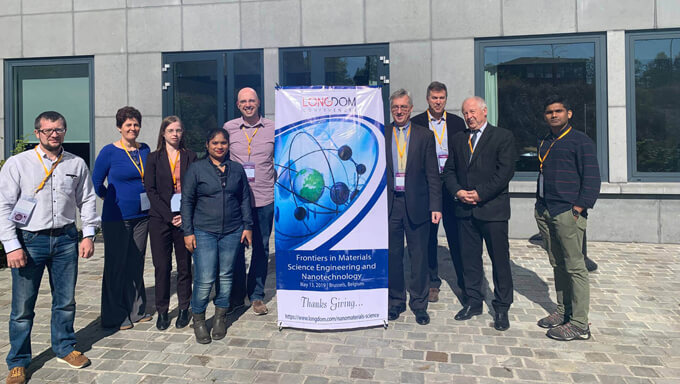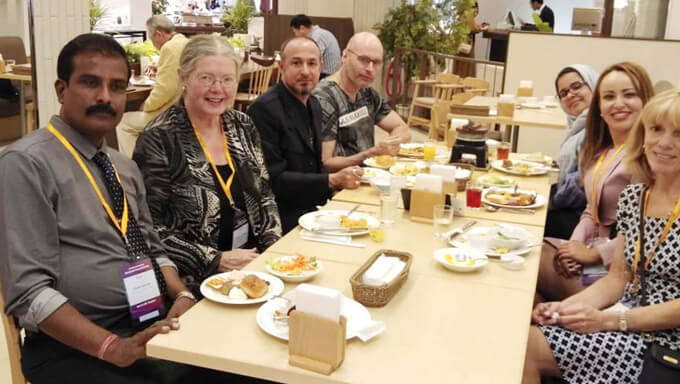







Personalized oncology is evidence-based, personalised therapy that provides the correct care to the right cancer patient at the right time, resulting in verifiable improvements in outcomes and cost savings. The usage of biomarkers is at the heart of personalised oncology's answer. Biomarkers derived from tissue, serum, urine, or imaging must be authenticated, and physicians must stay current on oncology advances. The goal of personalised medicine is to understand about a person's genetic makeup and how their tumour grows. They also discovered that genetic testing allowed doctors to tailor treatment to each patient's needs, resulting in fewer side effects than typical therapies.
The purpose of preventive medicine is to avoid disease by avoiding the occurrence of disease or by arresting disease and averting its effects after it has begun. Government entities, primary care physicians, and individuals who practise preventive medicine can all practise it. Many diseases have been conquered in the past by doing things for the individual. The current problem of preventive medicine is to inspire individuals to practise preventive medicine. For chronic illnesses, preventive medicine strategies are available, which include acting before disease develops and recognising and treating disease at an early stage. Preventive medications are used to aid in the treatment of sickness and the maintenance of good health.
Genomic medicine attempts to build individualized strategies for diagnostic or therapeutic decision-making by utilizing patients’ genomic information. Big Data analytics uncovers hidden patterns, unknown correlations, and other insights through examining large-scale various datasets. While integration and manipulation of diverse genomic data and comprehensive electronic health records (EHRs) on a Big Data infrastructure exhibit challenges, they also provide a feasible opportunity to develop an efficient and effective approach to identify clinically actionable genetic variants for individualized diagnosis and therapy. In this paper, we review the challenges of manipulating large-scale next-generation sequencing data and diverse clinical data derived from the EHRs for Genomic medicine. We introduce possible solutions for different challenges in manipulating, managing, and analyzing genomic and clinical data to implement genomic medicine.
The study of human genes as well as the genes found in various tumors is known as personalized cancer medicine. These investigations have aided in the development of more critical treatments. They've also used genetic data to build cancer diagnostics and prevention methods. Personalized medicine is based on your medical history, genetics, and disease kind. Genes provide instructions to your body's cells on how to grow and develop. Many tumors are linked to or affected by specific genes. Find out more about cancer and your genetic makeup. Precision medicine is another name for this technique. Other methods of cancer treatment may have more side effects than personalized cancer medicine. This is due to the fact that it is intended to be more particular.
Genomics is a method of controlling inherited traits. To group, collect, and break down the capacity and structure of genomes, researchers use recombinant DNA, DNA sequencing tools, and bioinformatics. Propels in genomes have sparked an uprising in disclosure-based research to see even the most complicated organic frameworks, such as the brain. Attempts to determine the entire DNA grouping and human genome variation of life forms, as well as fine-scale hereditary mapping, are all part of this field. Intragenic miracles, such as heterosis, epistasis, pleiotropic, and other correlations in the centre of loci and all inside the genome, are also investigated in this subject, as well as met genomics.
The control of matter on a nuclear, atomic, and supramolecular scale is known as nanotechnology ("nanotech"). The earliest, broad depiction of nanotechnology alluded to the specific mechanical goal of precisely regulating particles and atoms for the development of macro scale products, currently known as sub-atomic nanotechnology. Nanopharmaceutical applications, cell-based therapies in nanotechnology and biotechnology, molecular systems are the techniques and instruments.
The proteome is the entire set of proteins it is expressed by genome, cell, tissue, or organism at a certain time. More specifically, it is a combined of proteins and genomes. Proteomics is the study of the proteome. A cellular proteome is the collection of proteins present in a particular cell type and it exposure to hormone stimulation. It can also be useful to consider an organism’s complete proteome, which can be conceptualized as the complete set of proteins from all of the various cellular proteomes. Proteome used to refer to the collection of proteins in certain sub-cellular biological systems.
The proteome is the entire set of proteins it is expressed by genome, cell, tissue, or organism at a certain time. More specifically, it is a combined of proteins and genomes. Proteomics is the study of the proteome. A cellular proteome is the collection of proteins present in a particular cell type and it exposure to hormone stimulation. It can also be useful to consider an organism’s complete proteome, which can be conceptualized as the complete set of proteins from all of the various cellular proteomes. Proteome used to refer to the collection of proteins in certain sub-cellular biological systems.
A neurological issue is any tumour of the body sensory system. Auxiliary, biochemical or electrical variations from the norm of mind, spinal string or different nerves can bring about a scope of side effects. The indications incorporate loss of motion, muscle shortcoming, loss of sensation, seizures perplexity torment and changed levels of consciousness. They might be surveyed by neurological examination, considered and treated inside the specialities of neurology and clinical neuropsychology.
We let our ground-breaking work and our amazing clients speak for us…… LONGDOM conferences